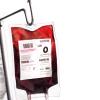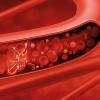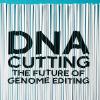Transfusion Practitioner Lisa McKain and Haematology Operations Manager Lorna Philpotts look at the application of academic learning in professional practice.

Biomedical science graduates enter a rapidly changing employment environment and have to be able to “hit the ground running”; this often means newly-qualified biomedical scientists are covering shifts much earlier than their predecessors may have done.
The research
A research project was undertaken to ascertain if the current degree course structure and content are aligned with the educational and developmental needs of future biomedical scientists and the requirements of NHS services. A qualitative questionnaire was constructed to evaluate the undergraduate degree process, with questions relating to the institution of study, duration and structure of the course, and whether it consisted of discipline-specific practicals linked to specific lecture topics. These were distributed to 50 Band 5 biomedical scientists in histology, microbiology, clinical chemistry and haematology across seven UK hospitals who had graduated from 16 UK universities.
The Quality Assurance Agency (QAA) for Higher Education released new standards in 2015, which have made some adjustments to the degree course, primarily to reflect the integration of molecular pathology and genomics into mainstream pathology. However, the individuals in the survey would have graduated from courses based on the 2007 QAA benckmark statement contents and it would not be possible to see if the newer standards had made any significant difference to course outcomes.
Practical experience
The survey responses demonstrated there is a difference in the approach to course structure. This would likely be a reflection of differences in lecture staff, research interests, the governance structure of the establishment and whether the course had a practical placement. Students who had undertaken a laboratory placement felt that the practical experience gained had been highly valuable, irrespective of whether the placement had been for 12 weeks or a full one-year sandwich course. These responses contrasted strongly with those from a non-integrated course, which showed that less than 30% offered practicals that were specifically designed to reflect routine pathology laboratory practice and those whose courses did felt that they did not replicate the working environment in a meaningful manner. This showed the value of integrated degrees with a laboratory placement as part of the accredited course, enabling a “real” laboratory experience. In this respect, it is not strictly fair to compare the outcome of an integrated biomedical science degree with that of a course without a placement. The students do not have the same level of practical understanding or experience of the employment environment, but should have the same theoretical knowledge.
The use of experienced biomedical scientists as sessional lecturers to deliver discipline-specific material greatly benefited the students by enabling them to learn the most current and relevant clinical information or processes. This experience can be strengthened if students are able to undertake laboratory practicals that mirror the tests that they would encounter in a laboratory. It is well documented that practical exercises, if used correctly, are a strong teaching tool that aids the student learning experience and onward developmental practice.
Partnerships
This study showed the importance of the university-employer liaison groups that are a key requirement of Institute-accredited courses. The purpose of these groups is to enable designated individuals, who may also be responsible for laboratory training, to have input into the development of course content. This link aids awareness by the university of what is expected in a laboratory, whether hospital or research facility, and is of benefit to all students, not just those with a placement. In courses that do not have a placement, the universities should still work in partnership with employers with the option to organise laboratory tours and maybe during the visit include some minor lab work. This would give students an opportunity, albeit a brief one, to experience a “real” laboratory and possibly gauge if this is the career they wish to pursue.
Critical thinking
Motivation and challenge of the student requires a balance of teaching and learning techniques. Critical thinking is one of the most important skills for biomedical scientists and its development is helped by problem-based learning to prepare them for the professional environment. Although this is the benchmark requirement of post-graduate learning, it is a skill that has its foundations at the undergraduate level and, from the research responses, was felt to be lacking. Incorporation of critical thinking into teaching practice allows the concept of active experimentation and concrete experience to be harmonised. This fulfils not just the learning experience, but arms students with a major fundamental employment skill, which will be an asset in any graduate career.
In addition, case study-based learning is an excellent means of preparing for the role of a registered band 5 biomedical scientist. The introduction of practicals that involve reviewing theoretical patient cases with sets of pathology results is an effective means of demonstrating the significance of pathology in a patient care pathway.
In conclusion, we believe an active partnership between employers and HEIs is key to delivering a strong undergraduate course, with graduates ready and prepared for employment in a clinical laboratory. Those graduates best equipped for employment in a clinical laboratory are those that have graduated from an Institute-accredited integrated degree course and this should be a key selection criterion for interviews.
The best outcomes are associated with courses where there is strong engagement between employers and universities to enable regular course reviews for each pathology discipline and exposure to technological advances and new equipment. Such changes will have a major impact on the employability of biomedical science graduates needed within the current climate.
Lisa McKain is a Transfusion Practitioner at University Hospital, Birmingham and Lorna Philpotts is Haematology Operations Manager at Heartlands Hospital, Birmingham. Both are sessional lecturers on MSc Biomedical Sciences at Coventry University.
Image credit | iStock




